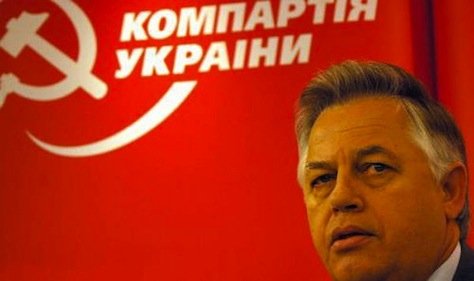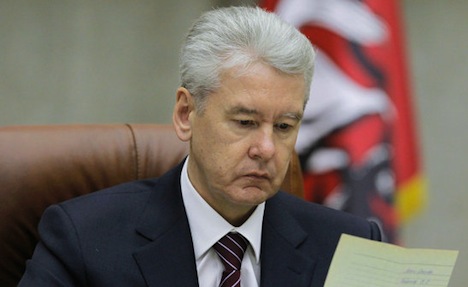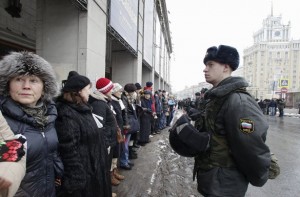
If you were one of the few voters left in Donetsk prepared to cast a vote in Sunday’s Ukrainian presidential election, the chances are fair that you were considering a vote for Petro Symonenko.
But Symonenko, a Donetsk native and the candidate of Ukraine’s Communist Party (Комуністична партія України) announced his withdrawal from the election on Friday, after an escalating war of words with Ukraine’s acting president Oleksandr Turchynov who, last week, directed an inquiry into the Communist Party’s activities with an eye toward its possible disqualification:
Turchynov said on May 18 that he had sent the request to the Justice Ministry and that he believed “a Ukrainian court will put an end to this matter.” According to the presidential website, the country’s security service has documented the party’s role in the separatist movements in the east and determined that several party members have acted “to the detriment” of Ukraine’s interests.
Ukraine’s Communist Party is an unreconstructed Soviet-style party, which draws support from the south and the east of the country, where ethnic Russians are predominant and where rebels are now giving the Ukrainian central government so much trouble.
The Communists win votes by appealing to nostalgia, especially among older voters, for the more predictable days of the Soviet Union. As you might imagine, it’s a party that has generally won a decreasing share of the vote in Ukrainian elections as fewer and fewer Ukrainians from the Soviet era are still around to vote for it, not unlike Gennady Zyuganov’s Communist Party in Russia.
* * * * *
RELATED: How eastern Ukraine referenda relate to the May 25 election
* * * * *
Though Symonenko (pictured above) made it to the runoff in 1999 against former president Leonid Kuchma and won 38.8% of the vote, he won just 4.97% in the 2004 election and otherwise overshadowed by the Orange Revolution, and he won just 3.54% in the 2010 election. In the most recent 2012 parliamentary elections, the Communists won 32 seats the 450-member Verkhovna Rada, Ukraine’s unicameral parliament, and they allied with former president Viktor Yanukovych, then the leader of the eastern-based Party of Regions (Партія регіонів).
So while it’s clear that though Symonenko may have picked up some votes in the May 25 presidential election from those areas that are currently under complete or partial control of pro-Russian separatists, there’s little chance that he would have won the election, especially with polls pointing to a first-round victory by Petro Poroshenko, a wealthy businessman who made his fortune selling chocolate, over former pro-Western prime minister Yulia Tymoshenko. Continue reading The Symonenko debacle undermines Ukraine’s electoral legitimacy

